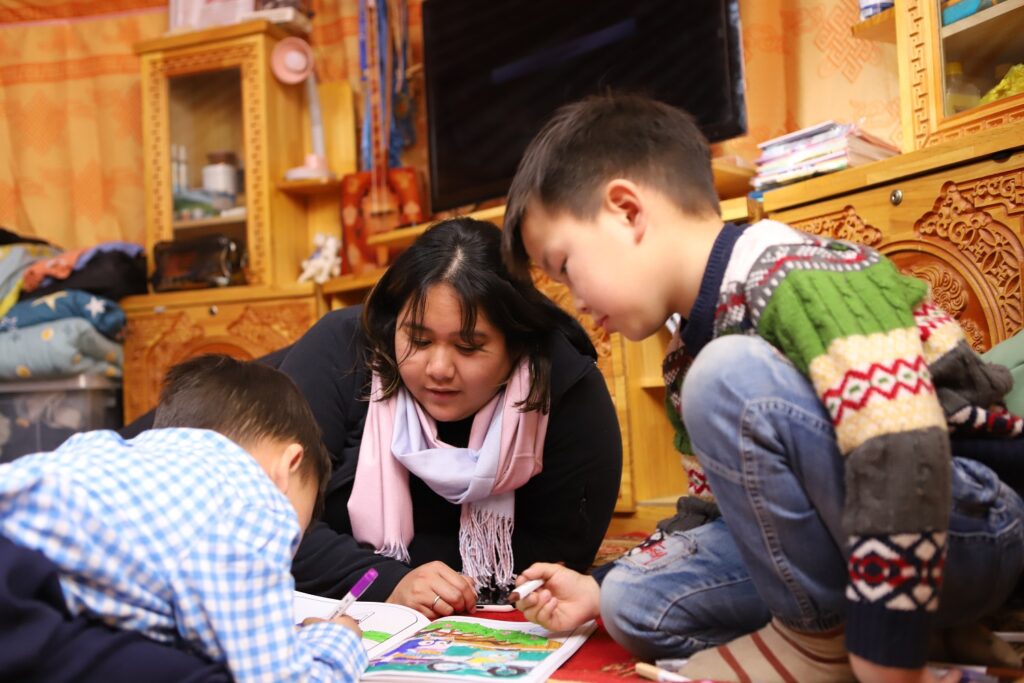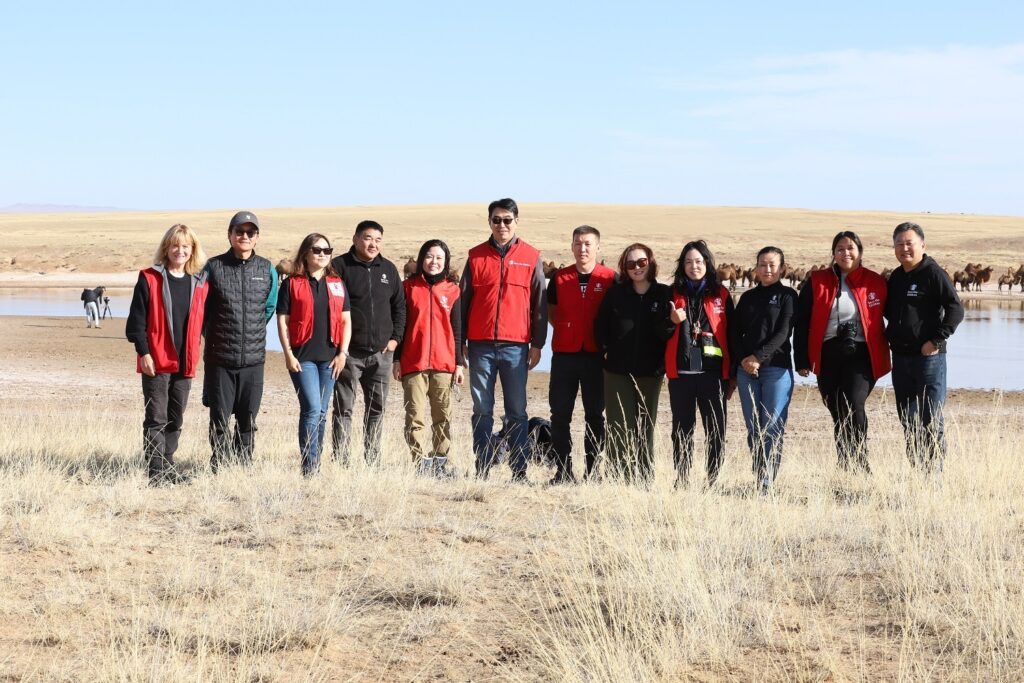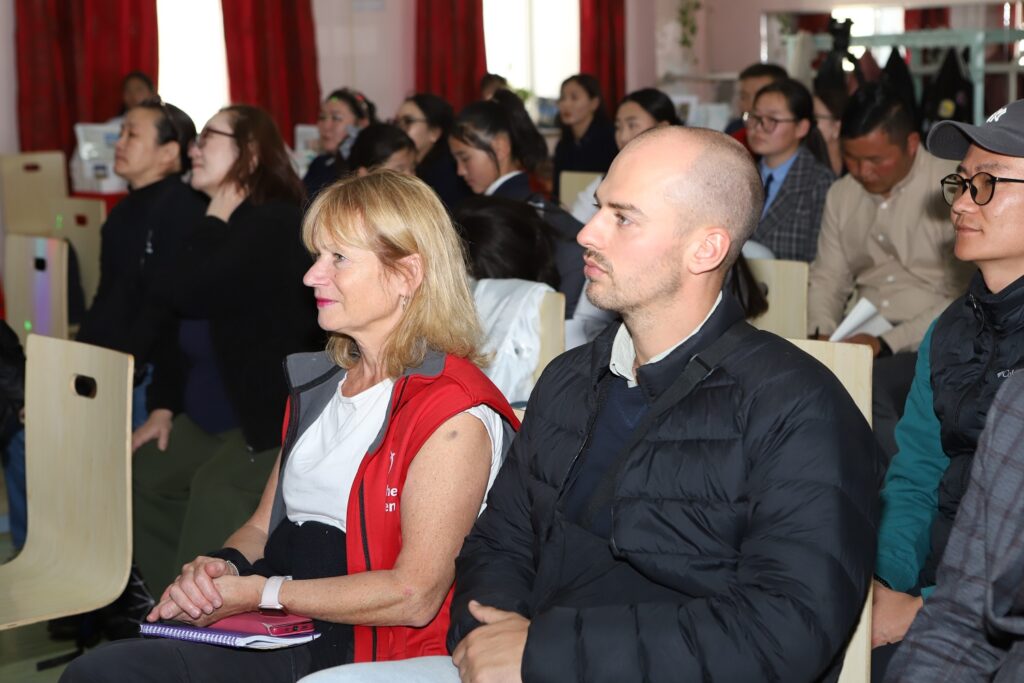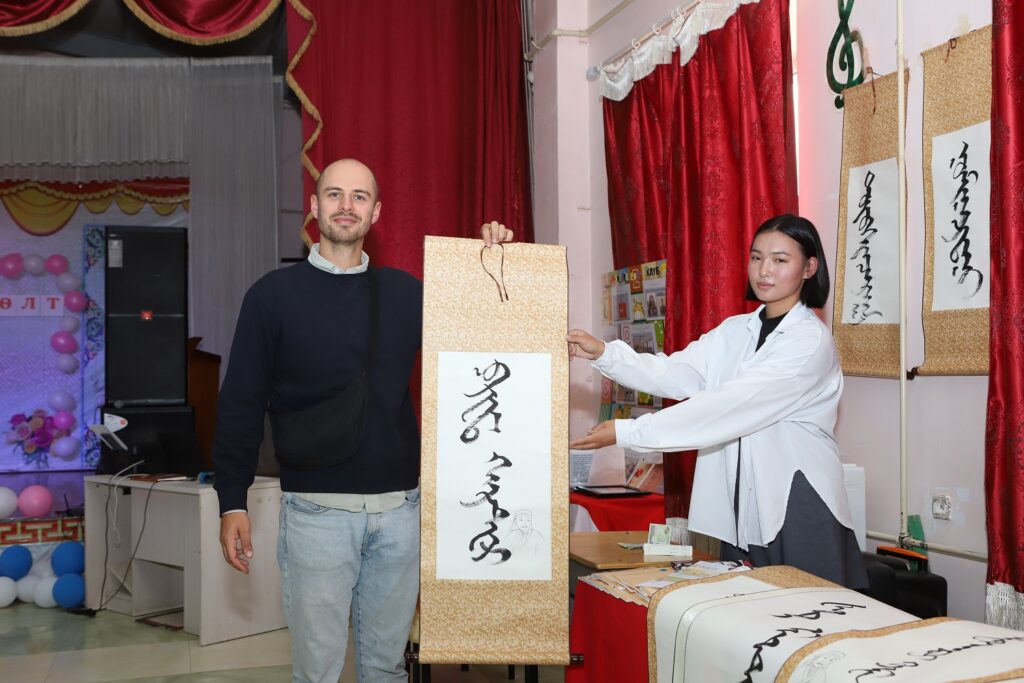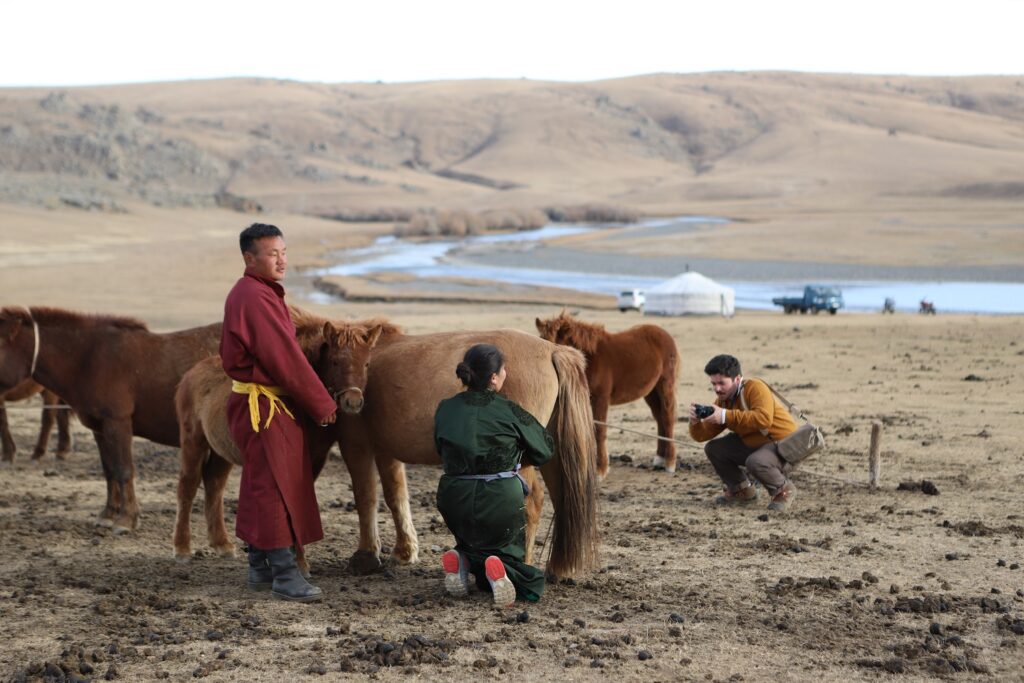International journalists report on the effects of the climate crisis on the lives of nomadic herders
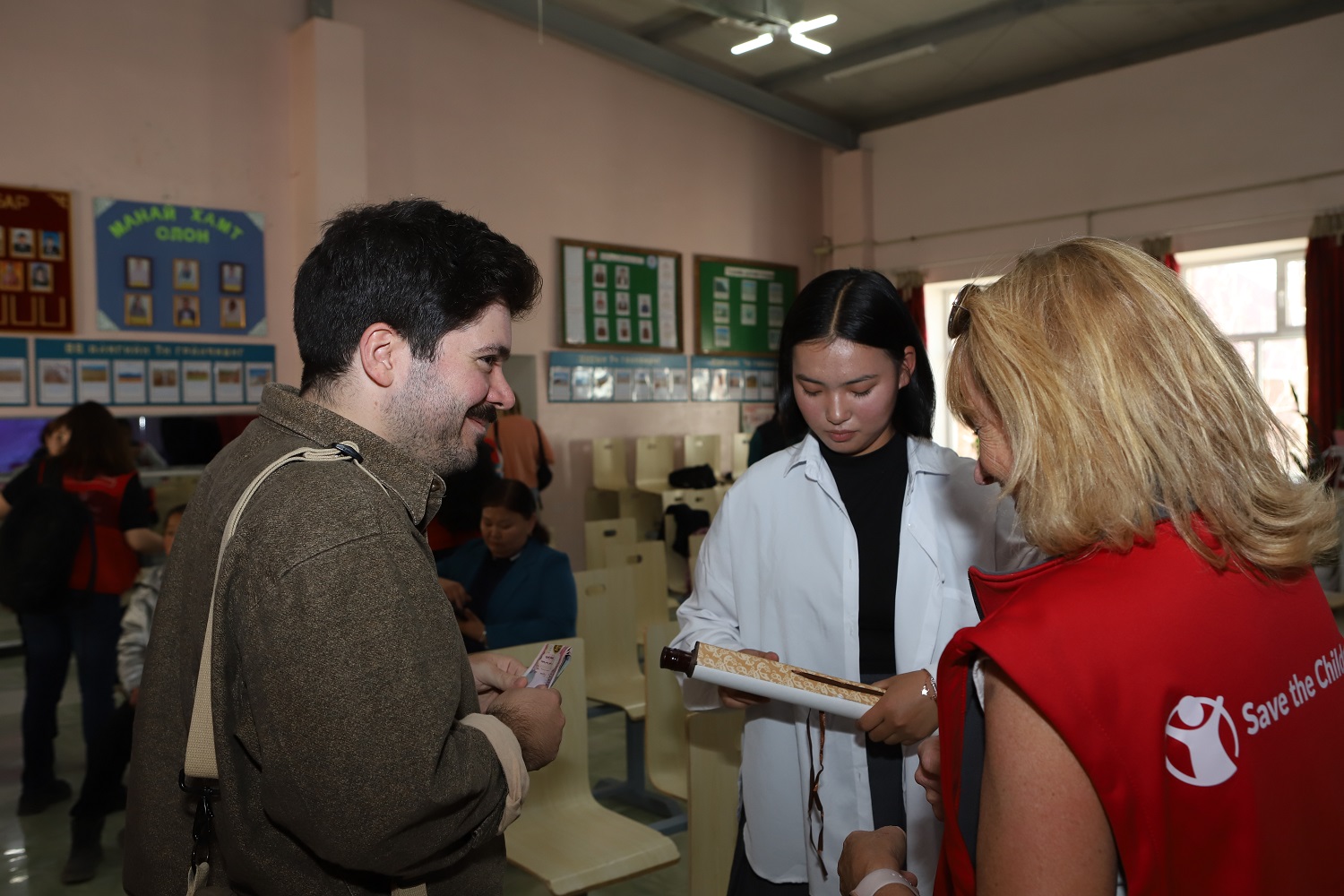
-Journalists got acquainted with some of the initiatives being undertaken by Save the Children in Mongolia-
International journalists and Save the Children’s international staff visited Mongolia to familiarize themselves with the activities of Save the Children and engage in discussions with herders to report on how climate change and extreme weather events such as drought and dzud affect their daily lives. From October 21 to 28, 2023, the journalists worked in Uvurkhangai province and Ulaanbaatar city to get deeper insights on how herders cope with changing weather and respond to climate crisis. During their stay in Uvurkhangai province, they conducted meetings with local government officials, gained insights into the issues related to climate change as well as the activities undertaken by Save the Children.
The international guests had the opportunity to interact with the children participating in the “Entrepreneurship-Focused Socio-Emotional Skills for the Most Vulnerable Youth in Rural Mongolia” project, which is being implemented by Save the Children in Sant and Kharkhorin soums of Uvurkhangai province. They showed particular interest in the goods and products crafted by these young participants. Most importantly, journalists paid visits to the homes of D.Davaadorj and Ts.Ganzorig, both herders from Sant soum, as well as L. Jamyansharav and B.Bayanmunkh, herders from Kharkhorin soum, in order to gain insights into their daily lives. During these visits, they engaged in discussions to report on the impact of climate change on animal husbandry, which has been rapidly accelerating in recent years.
Belinda Goldsmith, the Director of the Global Media Unit at Save the Children International said: “From the moment we drove onto the steppe, it was clear that we were set to have a fascinating few days. The purpose of the first International Press Trip to Mongolia was to focus on how the climate crisis is impacting the lives of nomadic herders and Save the Children’s work, putting a spotlight on a largely underreported issue ahead of the COP28 climate summit in Dubai in November. With four international journalists from Australia, Britain and the United States, over four days, we were given a unique insight into herders’ daily lives and the challenges that the changing climate is posing to their traditional livelihoods and cultural heritage and how we are supporting them. The hospitality we were shown by herding families who welcomed us into their gers with feasts of meat and mare’s milk was overwhelming – as was the honesty with which they spoke about the shrinking pasture, rising temperatures, more frequent Dzuds, and their fears and hopes for their children.
“This was matched by the welcome from all the staff from Save the Children Mongolia whom I am proud to call my colleagues. Throughout Uvurhangai province and Sant and Kharkhoum soums we were received with an openness only possible due to the deep regard held for Save the Children Mongolia. Governors, top officials, head teachers shared their knowledge with us while several groups of children amazed us with their music, dancing and singing”.
Jemala Darmadi, Media Advisor from Save the Children Australia added: “Organising a press trip takes meticulous planning – from the strategy behind the trip, logistics, pitching to journalists, organising visas and media permits, and the all the internal travel and meetings. The team at Save the Children Mongolia spent four months planning every detail which created a lot of work, but which paid off. The trip was excellent from start to finish, receiving high praise from the journalists. All staff were amazing with too many names to mention. The press trip to Mongolia showed so clearly the impact of the climate crisis and was such a success that I know there will be strong demand for another trip, from journalists as well as other Save the children leadership”.
The press team visited families in Ulaanbaatar’s Ger area and interviewed J. Gurdavga and U. Batbaatar, residents of the 21st khoroo of Bayanzurkh district, who have recently benefited from Save the Children’s humanitarian aid to help families and children affected by flood. They also learned about the initiatives carried out by some of the young people involved in the project “Enhancing Youth-led Engagement for Creating an Inclusive and Livable City in Ulaanbaatar’s Ger Areas”.
Alexander Kaufman, a senior reporter at HuffPost, shared his thoughts on the trip: “It’s rare to work directly with an NGO that has such respect for journalism and the way reporting is supposed to work. Save the Children provided expert context and translation and helped me reach sources that would have been completely inaccessible otherwise. Yet the team gave me complete leeway to direct my own reporting and interviews, and avoided pushing a specific agenda. The result will be an in-depth, original feature on one of the most urgent stories to tell — how climate change is upending an ancient way of life in a rapidly evolving and geopolitically sensitive nation”.
Mr. L. Bayan-Altai, Country Manager and Representative of Save the Children in Mongolia said: “Mongolia is among the countries most severely affected by climate change. It has become increasingly challenging for rural communities, including herders, to sustain their traditional ways of life. Frequent natural disasters, desertification and drought not only diminish the income of herders, but also have a profound impact on the well-being, mental health, and future prospects of their family members and children. During these challenging times, we deeply appreciate the efforts of journalists from leading international media outlets who have come to Mongolia to shed light on these issues for an international audience”.
The international team consisted of Media Directors, managers and staff from Save the Children Australia, Save the Children Japan and Save the Children International, as well as journalists from prominent media agencies such as HuffPost in the United States, the Guardian in the UK, and ABC News in Australia.



